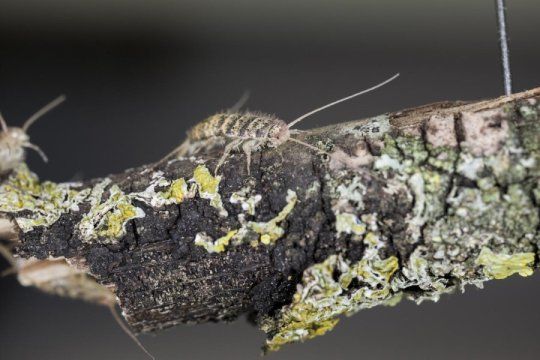Page 9958
Feb 26, 2018
Why Quantum Computers Will Be Exponentially Faster Than Digital Computers
Posted by Shailesh Prasad in categories: computing, quantum physics

Check out this week’s episode of Singularity Hub’s video series, Tech-x-planations, to learn more about what a quantum computer really is.
Feb 26, 2018
Bioquark Inc. — 20 Minutes of Influence Podcast — Ira Pastor
Posted by Ira S. Pastor in categories: aging, bioengineering, biotech/medical, business, disruptive technology, DNA, economics, finance, futurism, genetics
Tags: anti-aging, bioquark, biotech, health, healthspan, Life extension, lifespan, wellness
Feb 26, 2018
Digestive ability of ancient insects could boost biofuel development
Posted by Genevieve Klien in categories: biotech/medical, sustainability
A study of the unusual digestive system of an ancient group of insects has provided new insights into future biofuel production.
Feb 26, 2018
Caloric Restriction Improves Regeneration in Intestinal Tissue
Posted by Steve Hill in categories: biotech/medical, food
Caloric restriction has long been known to increase the lifespan and healthspan of most studied animals. Research also shows that animals given a calorie-restricted diet are also generally more able to regenerate tissue damage following injury.
Caloric restriction improves tissue regeneration
A new study by the Lengner lab at the University of Pennsylvania has identified the actual cells responsible for this increased regenerative capacity in intestinal tissue[1]. The researchers found that when a mouse given a calorie-restricted diet is exposed to radiation, a specialized type of stem cell known as a reserve stem cell is able to survive and rapidly repair intestinal tissues.
Feb 26, 2018
Can High-Tech Drones Help Stop Mass Shootings?
Posted by Zoltan Istvan in categories: drones, government, policy, surveillance
I’m excited to share a new article of mine via The Daily Dot on the future of so-called “gun control,” one that promises freedom and protects people from criminals and mass shooters. As usual, the answer is in technology to improve the world—and not in Congress changing or creating laws. This is a policy article of mine, and this is the technology you could expect to see in California if I was elected Governor:
High-tech drones and surveillance technology can offer a radically new type of gun control, helping detect possible the presence of guns and intervene in mass shootings.
Feb 26, 2018
Asteroid mining: What is it? SpaceX Falcon Heavy could make it a reality
Posted by Genevieve Klien in category: space travel
ASTEROID mining may sound like science fiction – but one astronomer believes it is getting closer to becoming a reality.
Feb 26, 2018
Image: Hubble finds the calm after the galactic storm
Posted by Genevieve Klien in categories: life extension, space
The NASA/ESA Hubble Space Telescope caught sight of a soft, diffuse-looking galaxy that is probably the aftermath of a long-ago galactic collision. Two spiral galaxies, each perhaps much like the Milky Way, swirled together for millions of years.
In such mergers, the original galaxies are often stretched and pulled apart as they wrap around a common center of gravity. After a few back-and-forths, this starry tempest settles down into a new, round object. The now subdued celestial body, cataloged as SDSS J162702.56+432833.9, is technically known as an elliptical galaxy.
When galaxies collide—a common event in the universe—a fresh burst of star formation typically takes place as gas clouds mash together. At this point, the galaxy has a blue hue, but the color does not mean it is cold: it is a result of the intense heat of newly formed blue–white stars. Those stars do not last long, and after a few billion years the reddish hues of aging, smaller stars dominate an elliptical galaxy’s spectrum. Hubble has helped astronomers learn of this sequence by observing galaxy mergers at all stages of the process.
Feb 26, 2018
New shark species found in Atlantic Ocean
Posted by Genevieve Klien in category: genetics
The “Atlantic sixgill shark”, is different than its counterparts in the Indian and Pacific Oceans.
: A team of scientists has identified a new shark species residing in the Atlantic Ocean.
Using genetic testing, the study confirmed that the new species, named the “Atlantic sixgill shark”, is different than its counterparts in the Indian and Pacific Oceans.
Continue reading “New shark species found in Atlantic Ocean” »

















